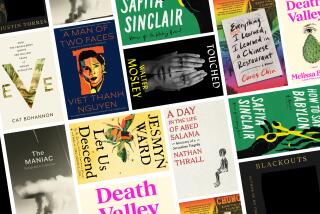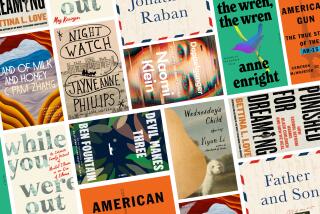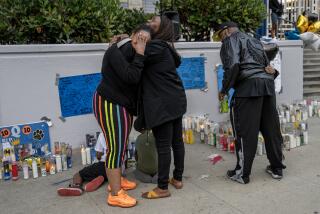NONFICTION - March 5, 1995
- Share via
DEAD OPPOSITE: The Lives and Loss of Two American Boys by Geoffrey Douglas (Henry Holt: $22.50; 207 pp.). It is difficult to be objective about a book when one has strong feelings regarding the subject matter. It’s even more difficult when the book itself is like a single, incandescent note, the sound of which seems to “contain the heartbreak of the entire world.” In his second book, “Dead Opposite,” Geoffrey Douglas constructs a stunning verbal documentary that goes beyond the story of two grieving families to examine the ever-widening gap between rich and poor, black and white.
Christian Prince was loved by almost everyone who knew him. A Yale student from Chevy Chase, Md., he had a life of privilege reserved for fewer and fewer people in this country. In February of 1991, Prince was shot to death while on his way home from a party. The boy accused of the murder, Duncan Fleming, was a poor, black, 16-year-old. Douglas spent hours with the relatives of both boys, and the result is a book that is part journalism, part ethnography and part guy-next-door telling a tragic, scary story.
“It is anarchy. A breakdown of everything--social, cultural, moral, familial--that we would define as ‘civilized,’ ” Douglas writes in a final chapter about ghetto life. “We have two societies not at war, not even just separate, but totally and increasingly estranged.” “Dead Opposite” is an brilliant book that should be read by anyone who has a stake in the world in which we live.
More to Read
Sign up for our Book Club newsletter
Get the latest news, events and more from the Los Angeles Times Book Club, and help us get L.A. reading and talking.
You may occasionally receive promotional content from the Los Angeles Times.









